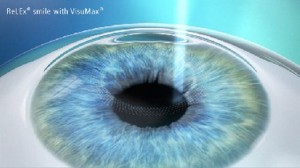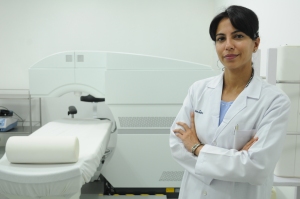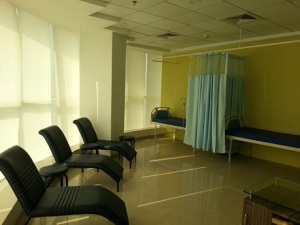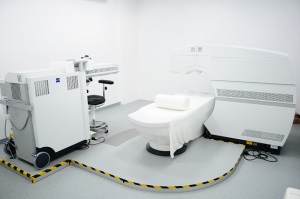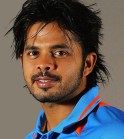Lasik is a laser based surgery in which cornea is reshaped with the help of laser. The change of curvature of the cornea helps in reducing the eye power. In majority of people after Lasik the effect is permanent. However a small minority of people may notice blurring of vision in future due to some new eye power. This is either due to minor regression or natural changes occurring in the eye. In many cases, people who experience some new eye power after LASIK are not affected by the change and don’t feel a need for additional vision correction. Others choose to wear numbered eyeglasses only for certain activities (night driving etc), and a few others get the touch up Lasik procedure called enhancement surgery.
Alka, a resident of Vashi, got her Lasik done 10 years ago and had enjoyed a glass free vision all these years. Recently she consulted at the Centre for Lasik surgery at Advanced Eye Hospital and Institute in Sanpada, Navi Mumbai. She was having some trouble seeing the small fonts on the power point presentations during the board meetings. Detailed evaluation of her eyes revealed that she has developed a minor (-0.75D) number in both eyes. Rest of the check up and pre LASIK evaluation was normal. Alka was already 39 and she will need reading glasses soon. She was given two options. The first was to undergo touch-up re-Lasik also called enhancement Lasik to correct the eye number. Second option was to use glasses for activities like board meetings and night driving. The second option had the advantage that she will not need reading glasses for the next 4-5 years. Her minor minus number will help in reading for the next 4-5 years. She liked the second option and chose to not go for the repeat enhancement Lasik laser surgery.
Enhancement Lasik laser surgery is a procedure where Lasik laser is repeated and the new number is reduced. The need for enhancements is caused by gradually changing eye power after previous Lasik surgery. There are many factors that influence the chances of future eye power after Lasik surgery.
- Age of the patient at the time of first Lasik surgery
Age of the patient is an important factor. This determines the maturity of an eye and the chances that future eye growth and change in parameters will influence the eye power. LASIK is approved for patients who are 18 and older. By age 24-25, eye powers tend to stabilize and Lasik can be done if eye power has not changed by more than 0.5 D in one year. 24 may be the best time to do the procedure, as at this age it is associated with very quick healing and visual recovery. A lot of patients even younger than 18 years especially those who do not want to wear glasses want to get the Lasik surgery and hope that newer LASIK’s like femto Lasik or Smile Lasik will make it possible. However it is important to remember that there is always a right time and age for doing Lasik. If Lasik is done at a younger age then the future eye growth can cause some numbers to develop in future. The best time for Lasik surgery is when the eye power has become stable after 20-22 years of age.
- Stability of numbers
Most people tend to achieve a stable eye power by the age of 20-23 years. It is important that eye power is stable prior to considering Lasik. Stable eye power signifies 2 things. Firstly it signifies that the growth phase of eye has completed and hence the possibility of future increases in eye power is lesser. Secondly it suggests that the eye is healthy and there are no eye diseases or other external factors like diabetes, hormonal changes etc influencing the eye power.
- Special situations
- Pregnancy-
Hormonal changes associated with pregnancy can lead to changes in the corneal curvature. This change in turn can cause the eye power to fluctuate. So if you are planning to get pregnant in the next 1 year, you should consider postponing the Lasik surgery. The right time is after the pregnancy and period of lactation.
- Diabetes
People with diabetes can develop fluctuations in blood sugar levels. This in turn can cause fluctuations in eye power. So for diabetics the rule of thumb is no LASIK unless there is strict control of blood sugar levels for the past several years.
- Thin corneas unable to bear the mechanical stressors– Believe it or not, normally also throughout our lives, our eyes are constantly exposed to various mechanical stressors. Blinking several times a minute, rubbing one’s eyes, sleeping facedown on the pillow etc all eventually have an effect on the shape of the eye. Theoretically this may cause a change in prescription. Remarkably, these changes are minimal. This is due to the fact that eye wall thickness can sustain the mechanical stressors without causing any significant change in the eye power. The same is true for patients who have undergone Lasik surgery as well. That is the reason initial corneal thickness is an important parameter to determine one’s suitability for Lasik. If corneal thickness is too less after Lasik surgery, it may not be able to bear the mechanical stressors and may start to bulge out. This in turn can induce high eye powers.
- Normal ageing process- reading glasses
Those who have worn powered eye glasses know that the eye powers are constantly changing and consequently our prescription lenses need to be changed from time to time. Unfortunately laser eye surgery, no matter how successful, cannot halt the natural changes in our eyes as we age. Some of the biggest changes in our eyesight usually occur during our forties. Close up vision becomes blurred and this is called ‘Presbyopia’. This loss of the ability to focus on close objects is a natural ageing process of the eye. If you have opted for LASIK surgery in your 20’3s or 30’s, then you will also need reading glasses as you cross the golden age of 40.
Lasik laser vision correction cannot change the natural tendency of our body. However from our end we should take care of a few things in order to reduce the chances of eye power fluctuation after Lasik. It is important to pick a highly skilled Lasik surgeon, get the Lasik laser with the help of latest technology, and go to the Lasik centre where a detailed pre-Lasik evaluation is done and a candidate is chosen carefully for Lasik surgery. Even then, be mentally prepared that an enhancement Lasik Surgery might be needed.
About Dr. Vandana Jain:
Dr Jain is a Cornea, Cataract and Lasik surgeon. She is trained from best of the institutes from India and USA. She has a vast experience of dealing with all kinds of Lasik surgery. She is proficient in not just Conventional Lasik surgery but also bladeless FemtoLasik and latest ReLEx Smile Lasik. She believes in choosing the right type of Lasik surgery for a patient after a detailed Pre-Lasik evaluation. Patient safety is always paramount when it comes to the choice of Lasik surgery procedure.
About Centre for Lasik Surgery at Advanced Eye Hospital and Institute in Sanpada, Navi Mumbai–
Centre for Lasik surgery at Advanced Eye Hospital and Institute is an advanced centre located on the serene Palm Beach Road in Navi Mumbai. It is a preferred centre for Lasik surgery by residents of Navi Mumbai. People from Vashi, Koperkharine, Ghansoli, Nerul, Khargar, Panvel, Chembur,Mumbai as well as Dubai prefer to get the Lasik Surgery done at the centre.
Videos
Watch Dr Vandana Jain, Cornea and Lasik Specialist perform SMILE Lasik – the most advanced and the best laser vision correction surgery in the world.
Watch Dr Vandana Jain, Harvard trained Cornea & Lasik Surgeon at Advanced Eye Hospital and Institute (AEHI) in Navi Mumbai, India answer frequently asked questions on SMILE laser vision correction surgery
